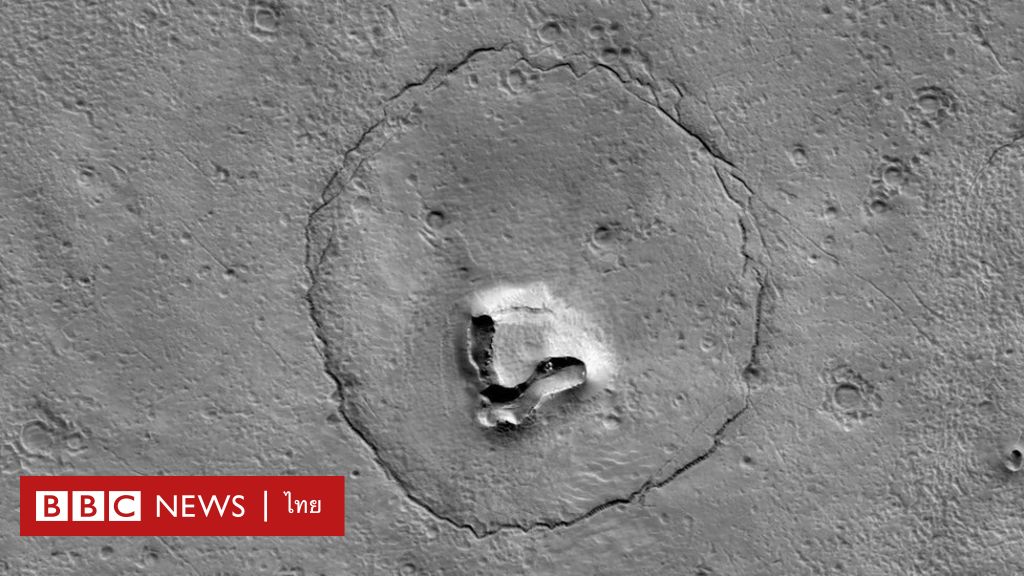image source, NASA
A team of astronomers from the University of Arizona in the United States Martian surface structured to resemble the adorable faces of huge “teddy bears”
The discovery of the “Mars teddy bear” came as a team of astronomers was studying high-resolution images mounted on the Mars Reconnaissance Orbiter (MRO). ) of the US National Aeronautics and Space Administration or NASA taken on December 12, 2022 while orbiting about 251 kilometers above Mars.
Astronomers describe This strange-looking geological formation This makes two craters likely formed by asteroid impacts look like the eyes of a bear.
while the hill This is likely a volcano whose peak has broken down to form the letter v, looking like a bear’s nose and mouth. The fissures on the surface of Mars are circular like the bear’s head. It may be the edge of an area where the dust has settled over another larger crater basin.
This isn’t the first time scientists have discovered a strange-looking surface on Mars.
image source, NASA / JPL-CALTECH / MSSS
Enlarged picture of a stone hole shaped like an entrance door found on the hill of Mars
In May of last year, NASA published an astonishing photo of Martian landscapes. The Curiosity Rover patrol robot captured the “Alien Gate,” a stone niche that resembled the entrance to a secret facility. But later, many Martian geology experts pointed out that It’s a trace of natural erosion. It was not a door made by humans or aliens.
Such strange rock formations on the hills on Mars. It was captured on Mount Sharp within Gale Crater, which Curiosity has been exploring at various locations since 2012.
Some Reddit users assumed that The “alien gate” may simply be a shear fracture in the rock structure. which is caused by stress (strain) or the deformation of the stone when an external force acts This could be a strong earthquake on Mars. NASA recently detected a tremor of the highest magnitude or magnitude ever observed on May 4, 2022. An external force could cause some of the rock to break off. until a door-like shape emerged
Why do people tend to look at things as faces?
image source, Getty Images
It is not uncommon for people to see things as faces. This phenomenon is known as pareidolia or pareidolia, a mental phenomenon in which the human brain attempts to make sense of its surroundings.
This phenomenon usually occurs when we perceive stimuli, such as images or sounds, that are vague or accidental. Then try to connect images or sounds that we are familiar with to become human faces, animals, or sounds.
An example of this phenomenon is seeing animal images or a face in the clouds picture of a rabbit on the moon and hearing messages when playing back vinyl records, for example.


